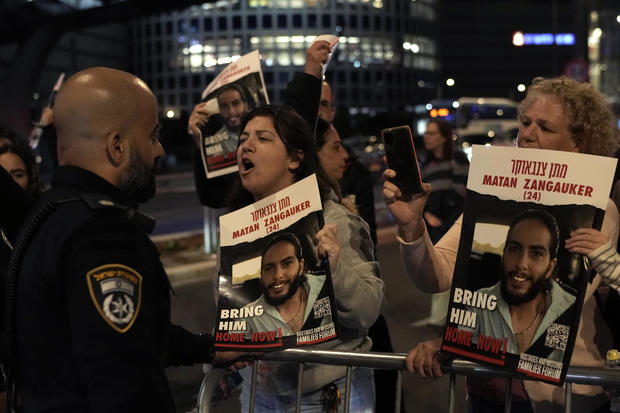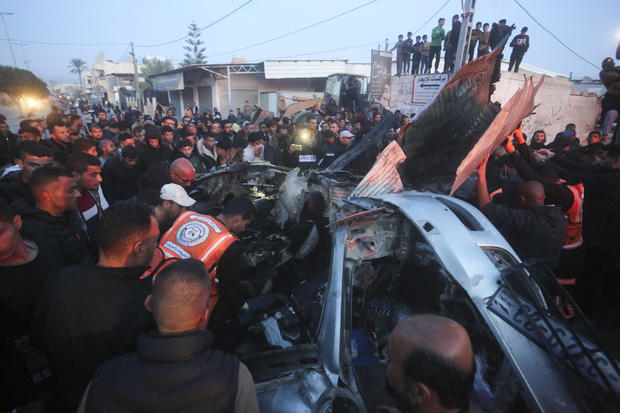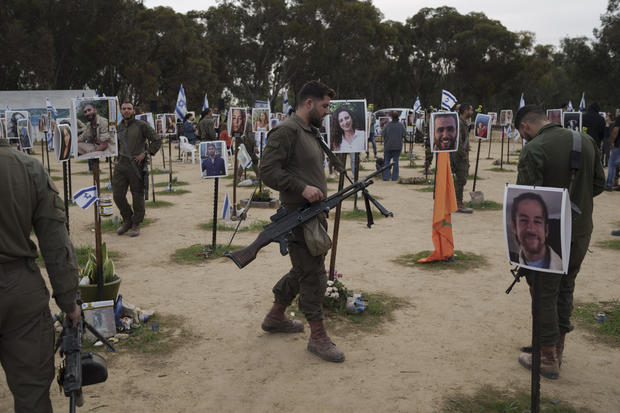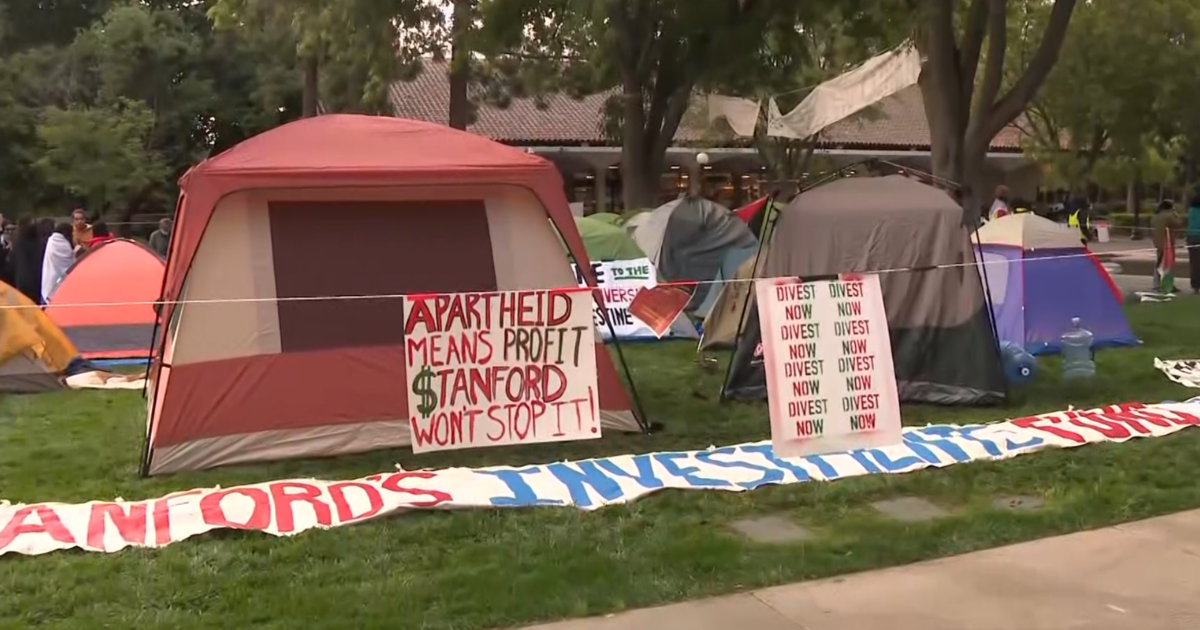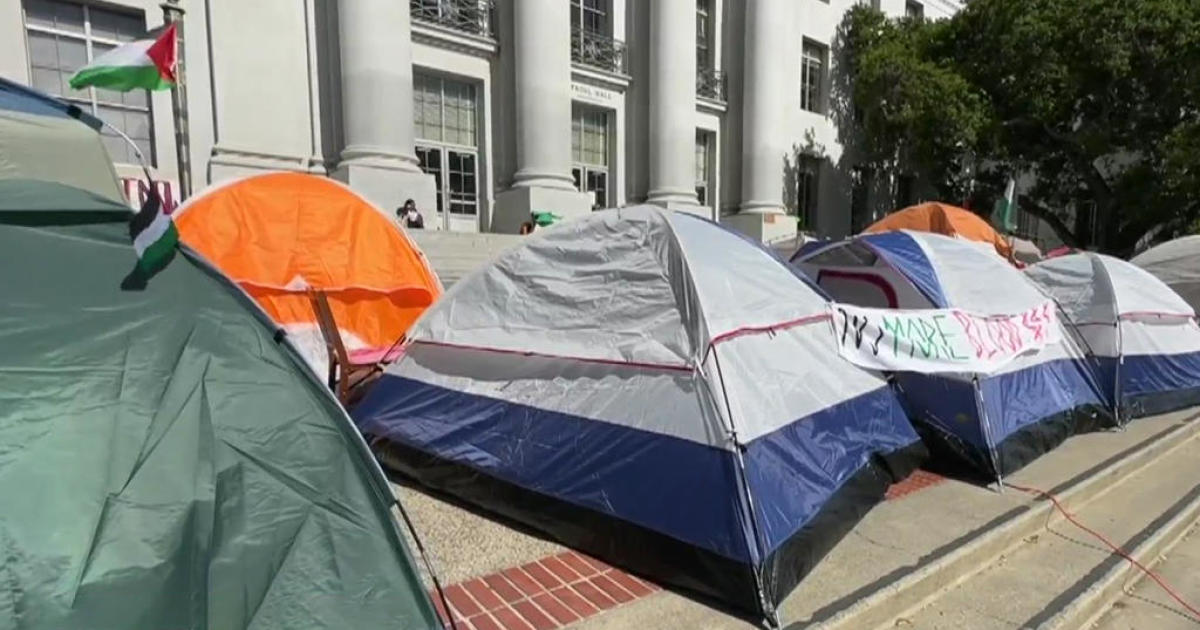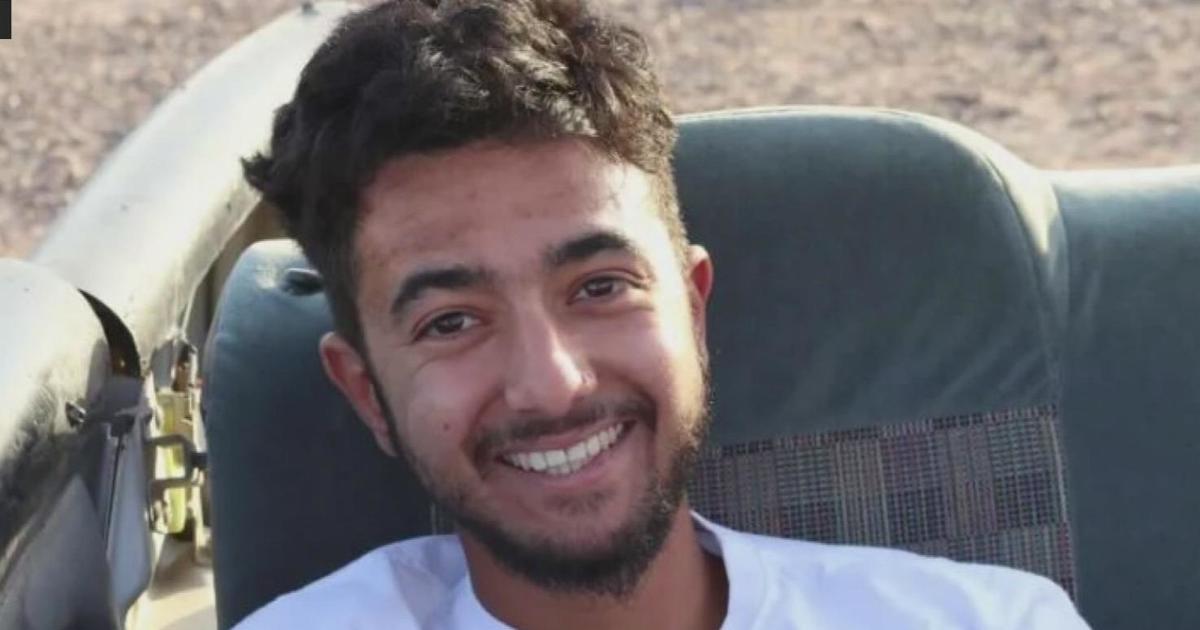Gaza's death toll surpasses 25,000, Health Ministry says, as ongoing Hamas war divides Israelis
The Palestinian death toll from the war between Israel and Hamas has soared past 25,000, said the Hamas-run Health Ministry in the Gaza Strip on Sunday, while the Israeli government appeared far from achieving its goals of crushing the militant group and freeing more than 100 hostages.
The level of death, destruction and displacement from the war is without precedent in the decades-old Israeli-Palestinian conflict. Israeli officials say the fighting is likely to continue for several more months.
The conflict and the plight of hostages held in Gaza have divided Israelis and their leaders while the offensive threatens to ignite a wider war involving Iran-backed groups in Lebanon, Syria, Iraq and Yemen that support the Palestinians.
On Sunday, the Israeli Air Force carried out two series of strikes on "terrorist infrastructure," including a military building, a launch post and an observation post belonging to the Iran-backed militant group Hezbollah, the Israeli military said. Israel said it also struck several locations in southern Lebanon, including a Hezbollah command center and military compound.
Earlier, on Saturday, at least five Iranians were killed in an Israeli strike on Damascus, Syria's capital city, which targeted a building used by the Iranian paramilitary Revolutionary Guard, according to Syrian and Iranian officials. And, on Thursday, Yemen-based Houthi rebels launched missiles at a merchant vessel owned by the United States, the Pentagon said, marking the latest attack from the militant group, which is similarly backed by Iran, on commercial ships in and around the Red Sea. It was the rebel group's third strike last week targeting U.S.-owned vessels.
Violence has also spiked in the occupied West Bank. On Friday, a Palestinian-American teenager was shot and killed by Israeli troops in the West Bank, a Palestinian official told Reuters.
In Lebanon, Hezbollah forces have engaged in near-daily clashes with Israeli troops along the border.
An Israeli airstrike on Sunday hit a car near a Lebanese army checkpoint in the southern town of Kafra, killing at least one person and injuring several others, Lebanese state media reported. The identities of those killed and injured were not immediately clear. Israel's military said it doesn't comment on reports in foreign media.
The United States, which has provided essential diplomatic and military support for Israel's offensive, has had limited success in persuading Israel to minimize the risk to civilians and to facilitate the delivery of more humanitarian aid.
Israeli Prime Minister Benjamin Netanyahu has rejected U.S. and international calls for postwar plans that would include a path to Palestinian statehood. U.N. Secretary-General Antonio Guterres called the refusal to accept a two-state solution "totally unacceptable."
"The Middle East is a tinderbox. We must do all we can to prevent conflict igniting across the region," Guterres added Sunday. "And that starts with an immediate humanitarian cease-fire to relieve the suffering in Gaza."
The war began with Hamas' surprise attack in southern Israel on Oct. 7. Terrorists killed some 1,200 people, mostly civilians, and took around 250 hostages back to Gaza.
Israel responded with a bombing campaign and ground invasion that laid waste to entire neighborhoods in northern Gaza and spread south from there. Ground operations are now focused on the southern city of Khan Younis and built-up refugee camps in central Gaza dating back to the 1948 war surrounding Israel's creation.
Israel continues to carry out airstrikes throughout the besieged territory, including areas in the south where it told civilians to seek refuge. Many Palestinians have ignored evacuation orders, saying nowhere feels safe.
Since the war started, 25,105 Palestinians have been killed in Gaza, while another 62,681 have been wounded, the Health Ministry said. The toll included the 178 bodies brought to Gaza's hospitals since Saturday, Health Ministry spokesperson Ashraf al-Qidra said. Another 300 people were wounded in the past day, he said.
The overall toll is thought to be higher because many casualties remain buried under the rubble from Israeli strikes or in areas where medics cannot reach them, Al-Qidra said.
The Hamas-run Health Ministry does not differentiate between civilians and combatants in its figures but says around two-thirds of the people killed in Gaza were women and minors. The ministry is part of the Hamas-run government, but its casualty figures from previous wars were largely consistent with those of U.N. agencies and even the Israeli military.
The Israeli military says it has killed around 9,000 militants, without providing evidence, and blames the high civilian death toll on Hamas because it positions fighters, tunnels and other militant infrastructure in dense neighborhoods, often near homes, schools or mosques.
The military says 195 soldiers have been killed since the start of the Gaza offensive.
The war has displaced some 85% of Gaza's residents from their homes, with hundreds of thousands packing into U.N.-run shelters and tent camps in the southern part of the tiny coastal enclave. U.N. officials say a quarter of the population of 2.3 million is starving as a trickle of humanitarian aid reaches them because of the fighting and Israeli restrictions.
"Bread does not suffice for one hour," said Ahmad Al-Nashawi, who accepted donated food at a camp of plastic tents in the southern city of Rafah. "You can see how many children we have other than women and men. What matters most for a child is to eat."
Netanyahu has vowed to keep up the offensive until Israel achieves "complete victory" over Hamas and returns all remaining hostages. But even some top Israeli officials have begun to acknowledge that those goals might be mutually exclusive.
Hamas is believed to be holding the captives in tunnels and using them as shields for its top leaders. Israel has managed to rescue just one hostage, and Hamas says several have been killed in Israeli airstrikes or during failed rescue operations.
A member of Israel's War Cabinet, former army chief Gadi Eisenkot, said last week that the only way to free the hostages was through a cease-fire. In an implicit criticism of Netanyahu, he said claims to the contrary amounted to "illusions."
Hamas has said it will not free more hostages until Israel ends its offensive. The group is expected to make any further releases conditional on securing freedom for thousands of Palestinians imprisoned in Israel, including high-profile militants involved in attacks that killed Israelis.
Israel's government has ruled that out for now, but it faces growing pressure from families of the hostages, who are pushing for an exchange like the one that took place during a weeklong November cease-fire.
Some Israelis also are frustrated by the security failures that preceded the Oct. 7 attack and by Netanyahu's handling of the war. Thousands of people gathered in Tel Aviv over the weekend to call for new elections.
But Netanyahu's far-right coalition partners are pushing him to step up the offensive, with some calling for the "voluntary" emigration of hundreds of thousands of Palestinians from Gaza and the re-establishment of Jewish settlements there. Israel withdrew soldiers and settlers from the territory in 2005, two years before Hamas seized power from rival Palestinian forces.
